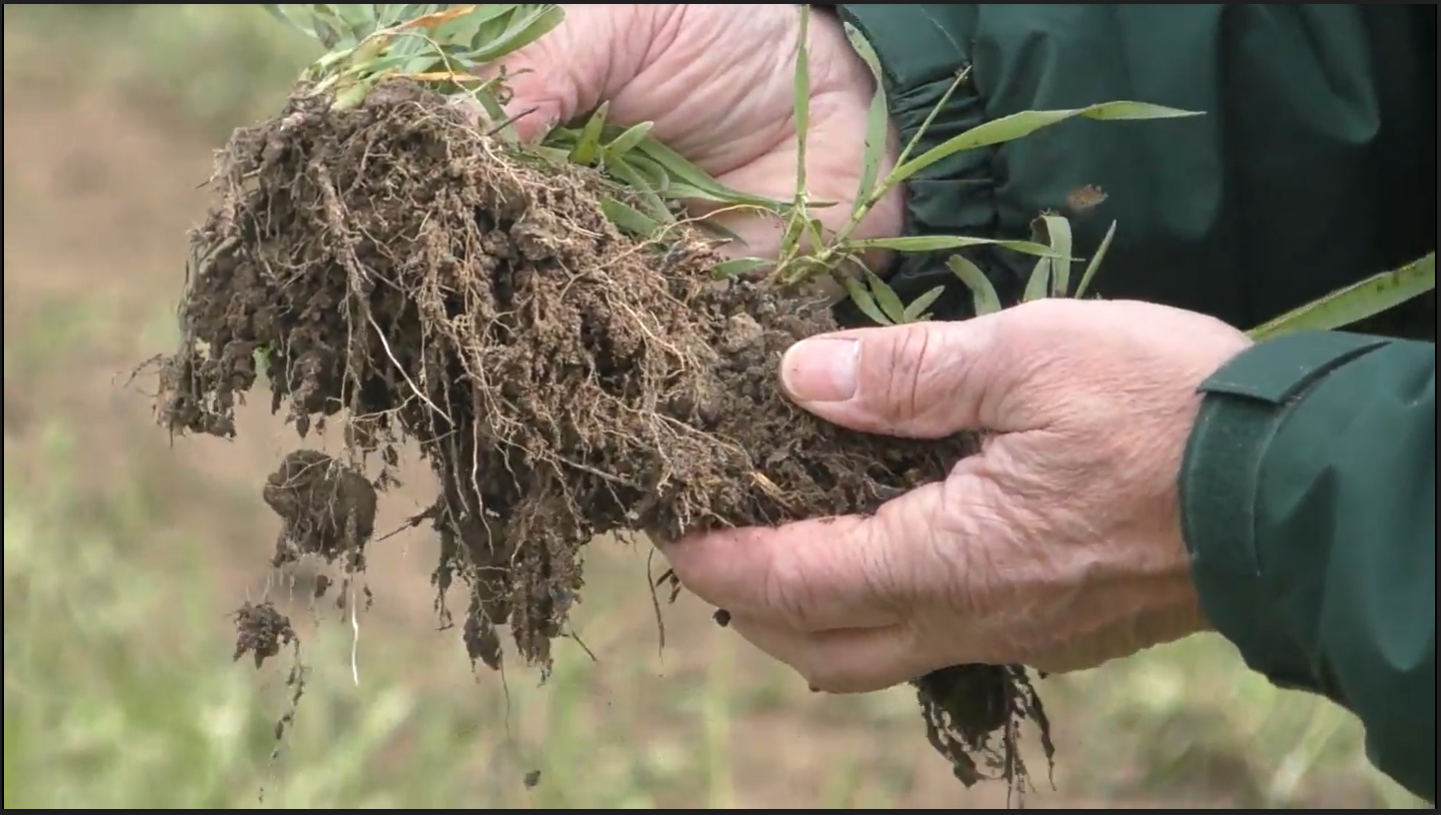The sustainability landscape across the globe, in the U.S. and even here at home continues to evolve. For agriculture, there is increased focus on a wide variety of practices that conserve and protect our land, water and soil.
One sustainability tactic that is gaining traction in the agriculture industry is the use of cover crops, or crops planted to cover the soil to conserve resources. To study and share the feasibility of cover crops, MMPA has been involved in a cover crop and soil health pilot project with two key customers: Unilever and Barry-Callebaut.
The two international dairy companies approached MMPA to form a collaboration focused on exploring the economic and environmental benefits of cover crops with MMPA members. Jessie Deelo, North America sustainable dairy consultant, has been working with MMPA on the cover crop pilot project on behalf of Unilever.
“As the world’s largest ice cream producer, the importance of developing tools and programs to advance sustainable dairy production is imperative” Deelo said. “We recognize the critical role of our key suppliers, such as MMPA, and are excited to invest directly in dairy producers to support soil health practices.”
A select group of MMPA members are participating in the sponsored program to further define the benefits of cover crops on Great Lakes region dairies and share these experiences with other fellow members.
Recognizing the interest among customers on sustainable practices, Brent Wilson from Wilson Centennial Farm in Carson City, Michigan, was part of the initial cover crop pilot project. “We want to assure the customer, and ultimately the consumer, that what they are getting is a top-quality product raised in a sustainable way with best management practices,” Wilson said.
The original farms enrolled in the pilot project agreed to a three-year commitment and completed the first planting in fall of 2020. Wilson said their farm decided to participate because they are interested in sustainable agriculture and were willing to trying out cover crops.
In a conversation with MSU Extension Educator Paul Gross, Wilson acknowledged the results for his farm have been positive so far, with yields trending upward.
“You’re holding nutrients, holding water and your yields are trending up. That’s the trifecta,” Gross said.
“I call that sustainability,” Wilson replied.
Another program participant—Rod Fowler from Fowler Dairy in Chesaning, Michigan—is no stranger to cover crops. His farm has planted cover crops, primarily rye, for over a decade. Fowler’s dad decided to try cover crops after attending an MSU Extension meeting several years ago. “We tried it small and just added. Now any low residue crop gets a cover crop in the fall.”

Speaking with Gross, Fowler remarked on the added value from planting cover crops over the years, in crop yields, water retention and overall soil health. Gross was able to immediately recognize the health of the soil and root systems in the field after digging out a small chunk of the earth.
“Look at the aggregates that are starting to build around these roots,” Gross said. “It’s always pretty impressive to see a live root and those rhizosphere effects. This is just a contribution that covers have to your soil. Put a little manure on it and it’s putting these microbes on steroids and just pumping carbon into the soil.”
Doug Chapin, MMPA board chairman and owner of Chapin Family Farms in Remus, Michigan, also took part in the cover crop pilot. Chapin’s primary interest was monitoring soil health and learning “if keeping these fields green can help with our phosphorus levels and keeping that nutrient more available to the next crop,” he said.
The program involves monitoring soil health metrics with support from the Corn Marketing Program of Michigan and will ultimately generate a report of all program metrics regarding soil health, adoption of the cover crop practice in acres and farms and associated conservation practices.
A few months into the pilot, the project is gearing up for a field day—led by MSU Extension Educators Gross and Dean Baas—to share in progress results and more information about cover crops with the MMPA membership. The virtual event will include recorded farm visits with six MMPA members, including Wilson, Fowler and Chapin.
As more farmers and dairy processors show interest in sustainable practices, education and collaboration will be key to helping study and potentially adopt new practices like cover crops.
“All practices have to be economically viable. I am hoping this study will show that these practices can be viable,” Chapin said. “I hope this project shows other members how to try it and see how it fits their operation. We will all learn from each other on this.”
The MMPA Cover Crop Project Virtual Field Day will take place on June 15 from 10 to 11:30 a.m. For more information, go to www.mimilk.com/membership/on-farm-partnership/cover-crops.
This article was originally published in the May/June 2021 issue of the Milk Messenger. Subscribe »

